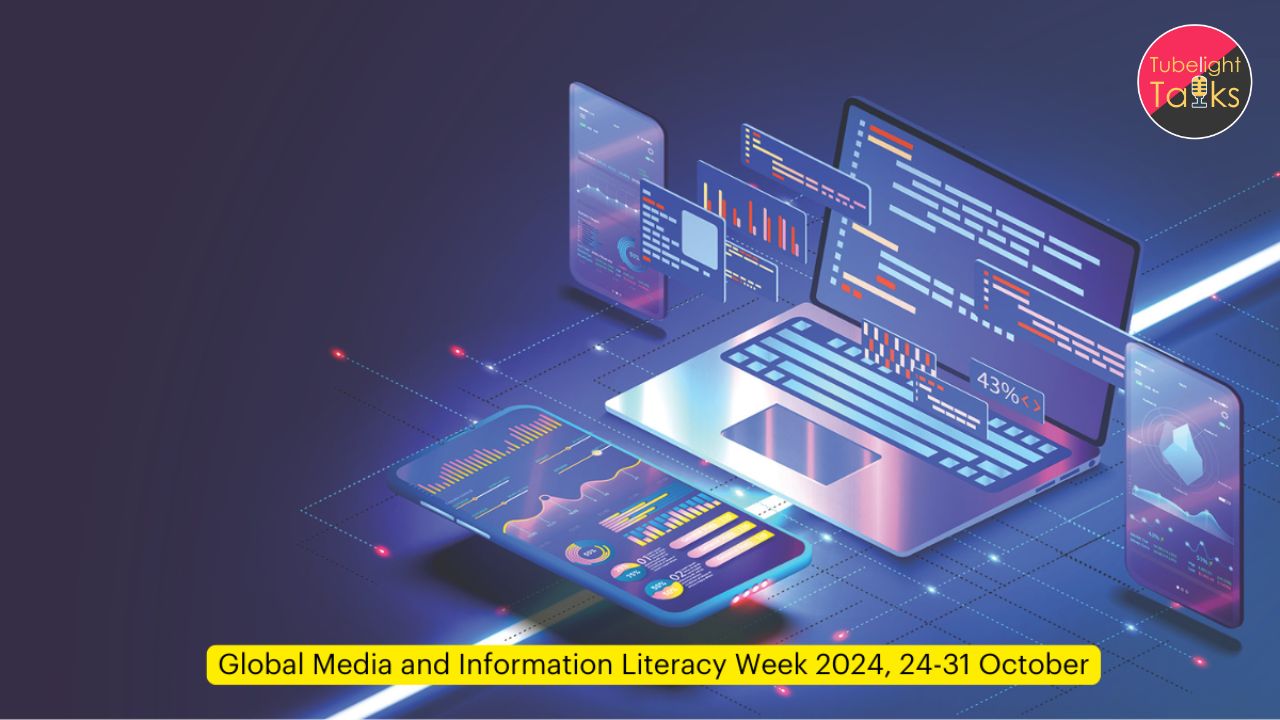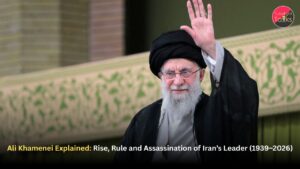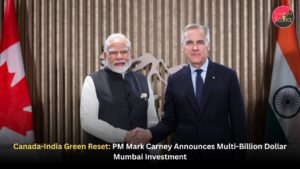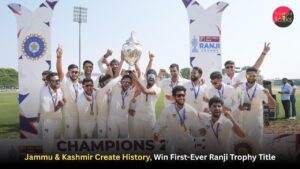Global Media and Information Literacy Week (Oct 24-31): Enhancing Critical Thinking and Ethical Digital Engagement
Global Media and Information Literacy (MIL) Week, celebrated annually from October 24 to 31, focuses on promoting informed societies through the development of critical thinking, media analysis, and ethical engagement with digital information. This global initiative, spearheaded by UNESCO, aims to equip individuals with the skills necessary to navigate the complexities of modern media and combat disinformation.
Key Highlights
- Global MIL Week is celebrated from October 24 to 31 every year.
- It encourages critical thinking and ethical media consumption.
- The event promotes combating misinformation and disinformation.
- UNESCO leads the initiative with events across the globe.
- Focused on empowering digital citizens to make informed decisions.
Global Media and Information Literacy Week- An Overview
Global Media and Information Literacy Week, celebrated from October 24 to 31, is a UNESCO-led initiative that aims to empower individuals to engage critically with media and information in today’s digital landscape. The week emphasizes the need to combat disinformation and develop the skills required to consume media ethically and responsibly.
With the rapid spread of misinformation, especially through social media platforms, MIL Week encourages a shift toward critical thinking and media literacy. This year’s theme highlights the importance of ethical media consumption and how individuals can protect themselves from falling prey to false information.
Throughout the week, various events, including webinars, workshops, and educational campaigns, are held to educate people on how to discern between credible and unreliable information. The initiative also calls upon governments, media outlets, and educational institutions to prioritize media literacy as a core skill in today’s world.
The importance of media literacy has never been more crucial. With millions of people relying on digital sources for their news and information, the ability to critically evaluate content is essential for maintaining informed and democratic societies. Global MIL Week is a reminder that being informed requires not just access to information, but also the skills to interpret it correctly.
The Invention of Global Media and Information Literacy
Global Media and Information Literacy (MIL) emerged as a response to the rapid expansion of media platforms and the overwhelming volume of information available in the digital age. With the rise of the internet, social media, and 24-hour news cycles, individuals increasingly needed skills to critically assess the content they consume. The concept of media literacy originated in the 20th century, evolving with technological advancements and the growing importance of being able to interpret and evaluate media messages.
Key Milestones in the Development of Global MIL
Early Beginnings (20th Century):
The idea of media literacy began taking shape in the 1960s and 1970s, largely in response to mass media’s influence on public opinion. Educators and media theorists began advocating for teaching critical thinking and media analysis in schools.
Digital Revolution (1990s-2000s):
With the rise of the internet and digital media, the concept of media literacy expanded to include the ability to navigate online spaces, understand digital content, and discern between credible and unreliable sources. This led to the recognition that information literacy—how to find, evaluate, and use information—was equally important.
UNESCO’s Role:
Recognizing the growing need for global citizens to develop these skills, UNESCO launched its Media and Information Literacy initiatives. In 2012, UNESCO declared the first Global Media and Information Literacy Week, marking an official commitment to promoting MIL as a core competency worldwide.
Globalization and Misinformation:
The increasing speed at which false information spreads, especially through social media, emphasized the necessity of media and information literacy for everyone. This helped shape MIL into a global movement for informed digital citizenship.
Sant Rampal Ji Maharaj’s Thoughts on Knowledge and Literacy
Sant Rampal Ji Maharaj often stresses the importance of gaining true knowledge and understanding, paralleling the principles of media and information literacy. Just as MIL enables people to separate fact from falsehood in the digital world, Sant Rampal Ji Maharaj teaches that spiritual seekers must develop discernment to recognize the truth in religious teachings.
He emphasizes that in the same way individuals should critically evaluate the media they consume, spiritual seekers must critically examine scriptures and
To understand how to use the invention of Global Media and Information Literacy (MIL),
it’s important to first recognize its purpose: empowering individuals to critically engage with media and information in today’s interconnected world. Here’s a guide on how to apply MIL effectively:
1. Critical Thinking and Analysis
- Evaluate Sources: Always assess the credibility of the source providing the information. Is it reputable? Is the author an expert in the subject?
- Cross-Check Facts: Before accepting information, compare it with other reliable sources to ensure accuracy.
- Detect Biases: Recognize that all media carry certain biases. Understanding this helps in forming an unbiased, balanced perspective.
2. Combatting Misinformation
- Fact-Check Before Sharing: Be cautious when sharing news or content on social media. Use fact-checking tools (like Snopes or FactCheck.org) to verify the information.
- Question Headlines: Sensational or misleading headlines are common. Always read the full article to understand the context before forming an opinion.
3. Navigating Social Media
- Be Aware of Algorithms: Social media platforms use algorithms to show you content you’re likely to engage with. Be conscious of echo chambers and strive to expose yourself to diverse perspectives.
- Understand Privacy: Know how your data is being used online and be mindful of what personal information you share on social platforms.
4. Educating Others
- Promote Media Literacy: Share what you learn about MIL with family, friends, and your community. Teaching others to think critically about media can help build a more informed society.
- Participate in MIL Week: Engage in Global MIL Week events, webinars, and campaigns to stay updated on best practices in media literacy and digital engagement.
Sant Rampal Ji Maharaj’s Spiritual Insights
Sant Rampal Ji Maharaj teaches that just as people should use media literacy to distinguish truth from falsehood in the digital world, they must apply spiritual literacy to their religious and spiritual practices. Here’s how his thoughts align with the usage of MIL:
Discernment:
Just as MIL teaches us to question media sources, Sant Rampal Ji advises questioning religious practices to see if they lead to true knowledge and salvation.
Critical Spiritual Inquiry:
Use the same approach in spirituality by studying holy texts critically, rather than following beliefs blindly. He emphasizes the importance of understanding the true teachings of scriptures.
Truth-Seeking:
The way we search for truth in media should be mirrored in our spiritual journey. Sant Rampal Ji’s teachings encourage us to seek the ultimate truth by understanding the essence of divine knowledge.
Both media and spiritual literacy are tools to help us lead more informed, conscious, and meaningful lives, making decisions based on truth rather than manipulation or misinformation.
Sant Rampal Ji Maharaj Ji clarifies in his Satsang that this modern media communication, global literacy, all this is a gift from God which will be used to propagate the knowledge of God.
Relating Spiritual Knowledge with Sant Rampal Ji Maharaj
Sant Rampal Ji Maharaj often emphasizes the importance of true knowledge and discernment in spiritual practice. Just as media literacy equips individuals to separate truth from falsehood in the digital age, spiritual literacy, as taught by Sant Rampal Ji Maharaj, enables followers to understand the deeper meanings of sacred texts and teachings.
His spiritual knowledge encourages seekers to critically examine religious practices and beliefs, ensuring they are aligned with true devotion and ethical conduct. By fostering spiritual literacy, much like media literacy, one can combat ignorance and rise above misleading or false practices in the pursuit of ultimate truth.
FAQs on Global Media and Information Literacy Week
1. What is Global Media and Information Literacy Week?
Global MIL Week is an annual event from October 24-31 aimed at promoting media and information literacy to help individuals critically engage with media and combat misinformation.
2. Why is Media Literacy important?
Media literacy enables individuals to analyze and critically evaluate the vast amount of information they encounter, helping them avoid misinformation and fostering informed decision-making.
3. How does Sant Rampal Ji Maharaj’s teachings relate to media literacy?
Sant Rampal Ji Maharaj Ji clarifies in his Satsang that this modern media communication, global literacy, all this is a gift from God which will be used to propagate the knowledge of God.
4. How can individuals participate in MIL Week?
Individuals can join online webinars, workshops, and campaigns organized by educational institutions, governments, and civil society groups to learn more about media literacy.
5. What are some key skills gained through media literacy?
Critical thinking, ethical media consumption, identifying credible sources, and recognizing misinformation are some of the core skills developed through media literacy initiatives like MIL Week.











Discussion (0)